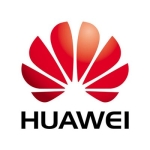What is our primary use case?
For Aruba Airwave, I am using the wireless devices for the Wi-Fi for the full company with access points. This is the top product I feel, and I see in the Gartner also. It is a good product and easily manageable. It is a cloud solution.
The best features in the product are that it can be easily managed, it is centralized, and a cloud solution is also available.
I am using it as a customer of Aruba, of HP.
What is most valuable?
The wireless devices are being used for Wi-Fi throughout the company with access points. It is the top product according to Gartner. It is a good solution and easily manageable as a cloud solution.
The product features excellent management capabilities, centralized control, and cloud solution availability.
Regarding real-time monitoring, it has its own dashboard. It is helpful for viewing live monitoring, how many users are connected to the Wi-Fi, and how much data bandwidth has been utilized. Everything is visible.
The solution is beneficial as everything is easily manageable and centralized. Device provisioning is straightforward. When you connect, Central will provide all the settings for the access point.
What needs improvement?
They have other sensors which can manage and control all the sites. There is an IoT component where we can restrict internet services such as Facebook and YouTube. These things can also be managed.
The main concern is about the IoT part.
For how long have I used the solution?
I have been using Aruba Airwave for more than one year.
What was my experience with deployment of the solution?
The installation of Aruba Airwave is easy to complete.
What do I think about the stability of the solution?
Sometimes there are some glitches; some access points will behave a little differently, but it is manageable.
As it is centralized, sometimes it disconnects from the cloud, and I need to reboot. These are small glitches.
What do I think about the scalability of the solution?
For scalability, it is performing well. I have been using it for one year, and so far, it has been good.
How are customer service and support?
The technical support from HP is good.
How would you rate customer service and support?
Which solution did I use previously and why did I switch?
I have used Cisco previously.
How was the initial setup?
The installation of Aruba Airwave is easy to complete.
What was our ROI?
Cost-wise, it is good, so I do see some ROI.
What's my experience with pricing, setup cost, and licensing?
I think the solution is quite affordable.
Which other solutions did I evaluate?
In comparison with Aruba, Cisco pricing is higher. The Cisco product is stable, but they need to improve the features in Cisco Meraki.
What other advice do I have?
For device provisioning, if you know the clear procedure, it will be easy; otherwise, it can be a little difficult. After learning the process, it is easy to do the access point management. Because I use the cloud centralized solution, it is easy to manage and device provisioning becomes straightforward.
I am not sure about advanced alerting, but there are many features inside Aruba Central, including a periodical report.
On a scale of 1-10, I would rate this solution an 8.
Which deployment model are you using for this solution?
Public Cloud
If public cloud, private cloud, or hybrid cloud, which cloud provider do you use?
Other
Disclosure: My company does not have a business relationship with this vendor other than being a customer.














